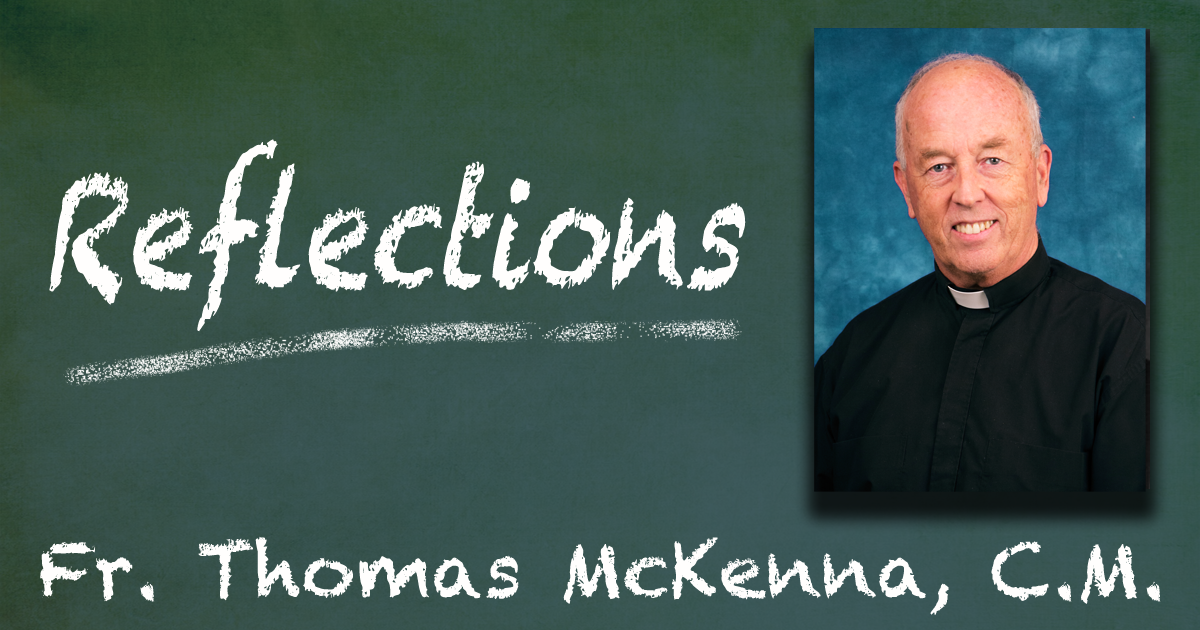
Lost and Found
(Luke 19:1-10; Wisdom 11)
Throughout Luke’s gospel, Jesus tells a good number of “lost and found” parables and incidents. There’s the lost and found coin, the lost-found pearl and earlier on the lost-found tax collector, Levi. And last Sunday we come across still another lost and found tax collector, Zacchaeus.
In his weekly commentary, Fr. Jude Siciliano, O.P. (First Impressions, Oct 30, 2016), offers a modern day metaphor that gets at what Jesus is doing with these stories. He takes us to the Returns Department at our local Walmart, always located near the main entrance. In front of it is always a line of people holding items for which they want to get back their purchase receipts.
But then there’s the Lost and Found Department, usually buried downstairs in the back corner of the store. On the shelves are items that for the most part people don’t care enough about to claim: umbrellas, knit hats, dusty water bottles, etc. Busy people just don’t have time or enough interest to search and claim their lost items. Those things sit there until their time is up, then are gathered together and tossed into a pile for the dump truck to come and cart them off.
Walmart’s basement helps us notice what Jesus has been doing when telling those lost and found parables, and then searching out the lost to claim for His own. Today He’s gone down to Lost and Found at the back of the store. And there He finds Zacchaeus on the lower shelf — and claims him for His own. As Jesus says, ‘this man too is a descendent of Abraham.’ And so coming into Zacchaeus’ house, as Luke has it, Jesus brings him back to the dignity others around have denied him and most likely to the dignity he himself doesn’t feel is there.
One of the lines from the Wisdom reading about God’s love hidden deep inside of all things catches this idea. ‘You, O Lord, love all you have made. You are the lover of souls. Your imperishable Spirit is in all things.’ This is God, seeing God’s own love deep in His people but lost to their awareness. And then, God going out not only to seek and find, but to invite Himself into that lost person’s home – all this to make him or her alive to that imperishable Spirit that up until now was mostly lost under the heap.
It raises the question, what is lost and not yet found, both in ourselves and also in others? What’s been left on the back shelf and neglected, and even buried? What’s been cast off inside both ourselves and in those who have been relegated to the basements of our world?
In regard to one’s own self. Are there things inside that we’ve mostly given up on? That is, those lost and shameful parts of our lives, those things tucked away in a corner that we’ve pretty much like to forget about? Traits and weaknesses and patterns we, mostly unawares, have put on that back shelf downstairs? Things we’d be happy enough not to have come to mind?
The lesson here is that these are exactly the places within us in which Jesus wants to set up house. As Fr. Siciliano puts it, “Jesus comes to our Lost and Found Department. He has, in the words of the grumblers, ‘gone to stay at the house of a sinner.’ Jesus wants to make a home with us in the very places we have closed up and locked away. He knocks and invites us to let him in, to change what we have given up on – to bring it into the light, to ‘bring salvation and healing to this (inside) house today.”
And then there are the others, the lost and the set-aside – and so the ones that enter our Vincentian awareness. What about the neglected of this earth, the set-asides, those left down on the basement selves? Wasn’t it Louise and Vincent’s founding impulse to seek and find just these “forgotten ones?” Isn’t it the purpose of our Vincentian Family to (oftentimes literally) enter the houses of these people and once there make it evident that ‘salvation has come into this place?’ Isn’t looking up and around for the outcast Zacchaeus’s of this world just what our legacy charges us to do?
And so the question. Do we invite The Lord into the forgotten and lost corners of life, the ones of our own and others? Do we welcome Him in at any time? But especially do we do so in the Eucharistic gathering — in the Word we hear there and the bread and wine we break and pour out and then share? Can we, like the lost-and-then-found Zacchaeus, let in The Lord and so let the out-of-sight parts of ourselves and of others be found and ‘received with joy?’
So. Lost and found, overlooked and then recognized for one’s true worth before the all loving God. The Zacchaeus story as our story, both in close personally and out beyond in the wider world.







Fr. Tom,
The “lost & found” analogy is us. At least,in speaking for myself,my own twisted journey, as both sinner & saint, stands as a saga of Christ continuously finding me and gracing me. As Deacon Ormonde Plater taught, we are icons kneeling in the dust of our repented sins through which humanity can envision God Himself…(paraphrase). It’s great that Jesus finds us on dirty dusty shelves in remote “corners of Walmart”. Thanks for the analogy,Tom. Happy Thanksgiving to you and to your Vincentian Confreres.
Ed Ambrose
St. Joe’s,AA,1957